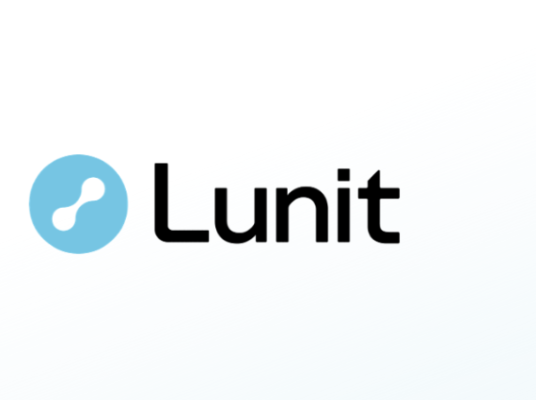
Feb. 3, 2025 — Lunit, a provider of AI-powered solutions for cancer diagnostics and therapeutics, has entered into a partnership with the Society for Immunotherapy of Cancer (SITC). This collaboration will launch the "Lunit Research Program" for SITC members, granting access to Lunit SCOPE IO for quantitative immune phenotyping and tumor microenvironment (TME) analysis from H&E whole slide images (WSIs).
SITC is a member-driven organization specifically dedicated to improving cancer patient outcomes by advancing the science and application of cancer immunotherapy.
Through this program, Lunit and SITC will support academic and non-profit researchers who are SITC members by offering use of Lunit’s AI model, Lunit SCOPE IO, at no cost. The program will enable participants to conduct advanced analyses of histologic features from H&E whole slides images, including cell identification such as Tumor-Infiltrating Lymphocytes (TILs), macrophages, endothelial cells, and more; tissue segmentation; and quantitative immune phenotyping (e.g. inflamed, excluded, and desert), providing valuable insights for biomarker discovery and immunotherapy research.
Lunit SCOPE IO is an AI solution developed to quantify histology from H&E WSIs, bridging the gap between pathology and precision oncology. Its advanced capabilities provide researchers with insights into the immune landscape of tumors, enabling the identification of biomarkers predictive of immunotherapy response. This innovative approach supports the discovery of novel treatment strategies and enhances cancer immunotherapy research.
Lunit SCOPE IO leverages advanced deep learning algorithms to provide:
- Quantitative Immune Phenotyping: Classifying the tumor microenvironment into inflamed, excluded, and desert phenotypes provides actionable insights for immunotherapy strategies.
- TIL Analysis: Identifying and quantifying Tumor-Infiltrating Lymphocytes, a key biomarker for immune response.
- Comprehensive TME Profiling: Analyzing histologic features including stromal and immune components such as fibroblasts, macrophages, and endothelial cells.
- Support for Biomarker Discovery: Enabling researchers to identify novel biomarkers and assess correlations with therapeutic outcomes in cancer immunotherapy.
This initiative aligns with Lunit’s mission to bring AI-powered image analysis into routine cancer diagnostic research and clinical practice. By collaborating with SITC, the global authority in immunotherapy, Lunit aims to enhance immunotherapy research conducted by leading experts in oncology, pathology, and immunology.
Program Highlights
- Eligibility: The program is open to SITC members affiliated with academic or non-profit research institutions, holding positions such as faculty member, research scientist, or postdoctoral fellow. Applicants must demonstrate expertise in oncology, pathology, or immunology.
- Application Process: Eligible members can submit a brief study outline (1-2 pages) and the principal investigator’s CV. The application period runs from February 1 to April 30, with a review process taking 2-3 months.
- Resources Provided: Participants will receive complimentary access to Lunit SCOPE IO for analysis of H&E slides, as well as optional slide scanning services at cost.
- Desired Outcomes: The program encourages peer-reviewed publications and conference presentations detailing findings from studies using Lunit SCOPE IO.
Timeline and Key Dates
· Application Period: February 1 – April 30, 2025
· Review and Notifications: May – July 2025
· Project Start Date: Summer 2025
“Through our partnership with SITC, we are enabling researchers to harness Lunit SCOPE IO’s advanced AI capabilities for a deeper understanding of the tumor microenvironment," said Brandon Suh, CEO of Lunit. "We eagerly look forward to the discoveries and advancements this collaboration will bring, shaping the future of cancer immunotherapy and delivering more precise treatments to patients."
“For 40 years, SITC has been at the forefront of driving the immuno-oncology field in an effort to positively affect patient outcomes,” said Mary Dean, Executive Director of SITC. “SITC is excited to make this benefit available to its members, enabling advancement to their impactful research.”
Discover more at lunit.io.

 August 29, 2024
August 29, 2024 








